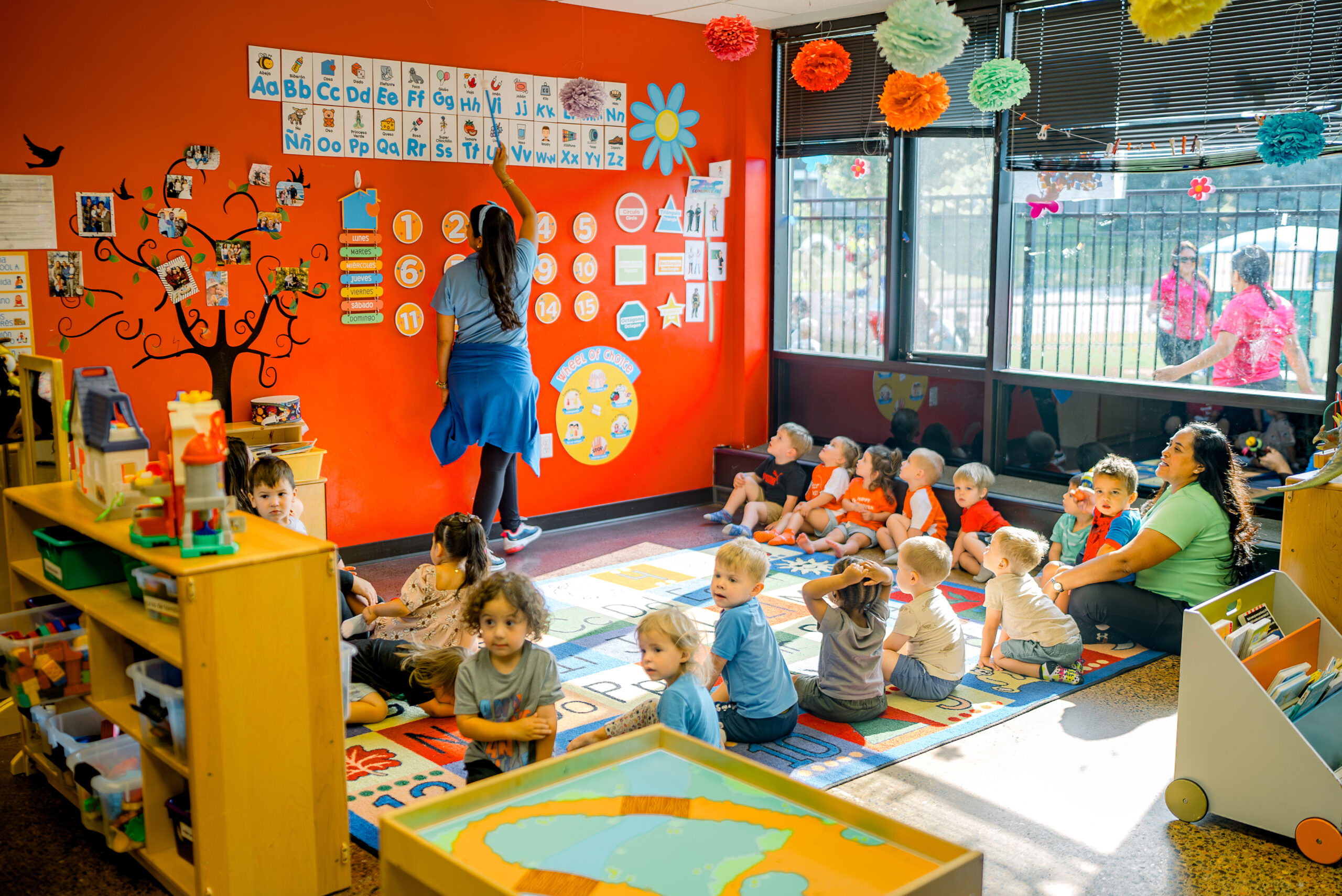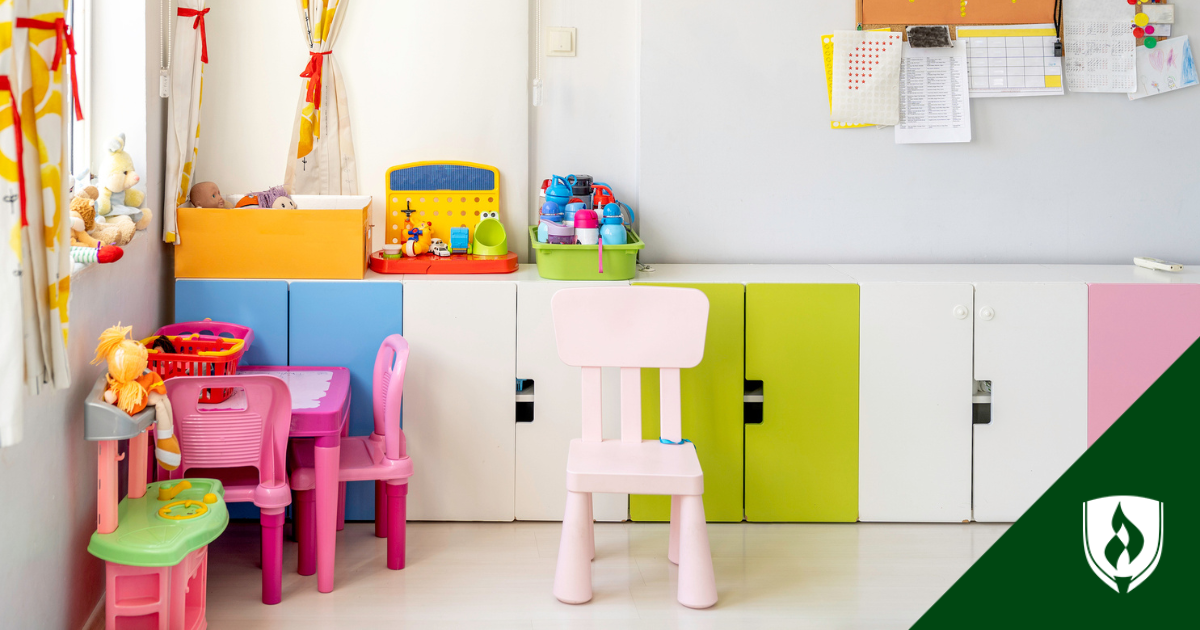Essential Questions To Ask When Evaluating Child Care Near Me
Wiki Article
The Role of Day Care in Fostering Social Abilities and Early Understanding
Day care serves as a considerable environment for young youngsters, helping with vital social interactions that promote very early discovering. In this organized setup, kids involve with peers and caretakers, creating important communication and participation skills. As they browse play and various activities, they learn to deal with disputes and build emotional intelligence. Understanding the subtleties of these interactions discloses the profound influence childcare carries a kid's growth, shaping their future relationships and academic readiness. What details skills do kids acquire in this setup?The Relevance of Social Interaction in Childcare
While many parents recognize the importance of early childhood education, the function of social interaction in day care is often ignored. Childcare settings supply kids with indispensable possibilities to engage with peers, fostering essential social skills. During these formative years, kids discover to navigate different social characteristics, such as sharing, teamwork, and problem resolution. Connecting with diverse age groups and characters boosts their capability to adapt to different environments and create compassion in the direction of others.
Building Interaction Abilities Through Play
Play works as an effective medium for children to build important interaction abilities in childcare setups. Through various play tasks, children involve in discussions, share their ideas, and discover to pay attention to others. Role-playing video games, as an example, encourage them to use language in various contexts, promoting vocabulary development and understanding of social signs.
Narration during playtime enables youngsters to share emotions and ideas, helping them establish narrative abilities and confidence in their verbal expressions. On the whole, play not just functions as a pleasurable leisure activity however additionally as an important platform for developing the communication abilities essential for successful social communications in later life.
Motivating Teamwork and Team Effort
Cooperation and teamwork are crucial abilities that kids can cultivate in day care environments. Through numerous group tasks, such as developing tasks or collective games, youngsters discover to share duties and pursue common objectives. These communications promote an understanding of the importance of paying attention to others, negotiating duties, and endangering when required.In childcare setups, caregivers typically create opportunities for youngsters to participate in teamwork by motivating them to join team tasks. This not just aids youngsters create social bonds however also grows a sense of belonging and area.
As they navigate these participating experiences, children gain useful insights into the dynamics of functioning with peers. They learn to value diverse point of views and recognize that each member adds distinctively to the group effort. Inevitably, these early lessons together and teamwork prepared for healthier connections and effective partnership in future social and scholastic settings.
Structured Discovering Activities and Cognitive Development
Structured learning activities play an essential duty in fostering cognitive development in children (Child Care Near Me). These tasks, which consist of challenges, storytelling, and hands-on experiments, promote important reasoning and analytical abilities. In a daycare setup, organized knowing encourages kids to engage with their peers, boosting their capability to process info and comprehend various concepts
With directed play and interactive jobs, youngsters establish foundational skills such as numeracy and proficiency. As an example, tasks focused around numbers can help youngsters comprehend mathematical ideas, while narration improves language acquisition and understanding. Furthermore, structured learning permits educators to evaluate developmental development and dressmaker activities to specific understanding needs.

Including a diverse variety of structured tasks not just advertises cognitive growth yet also prepares kids for future academic success. By providing a balanced setting that cultivates expedition and questions, daycare programs play a necessary duty fit the cognitive abilities of young learners.
Fostering Emotional Knowledge and Confidence
Emotional intelligence and self-confidence are essential parts of a child's advancement, matching the cognitive abilities fostered through Childcare North York structured knowing activities. In childcare settings, children are provided with chances to share their emotions and take part in social interactions, which are crucial for constructing emotional awareness. Via guided play and team activities, kids learn to determine their sensations, identify those of others, and create compassion.Moreover, interaction with caretakers and peers assists to grow self-worth and strength. Favorable support and encouragement from grownups equip kids to take dangers and face difficulties, fostering a feeling of success. As they navigate social dynamics, youngsters develop confidence in their abilities to connect, work together, and settle problems - Daycare North York. This caring atmosphere permits the steady growth of emotional knowledge, which is essential for future interpersonal partnerships and overall health. As an outcome, childcare plays a considerable duty in promoting both psychological knowledge and self-confidence in kids
Regularly Asked Concerns
How Can Moms And Dads Choose the Right Day Care for Their Kid?
Parents must consider aspects such as area, team certifications, safety and security standards, educational program, and assesses from other parents when picking the right childcare for their youngster, guaranteeing it aligns with their youngster's developmental demands and family members values.
What Age Is Finest for Beginning Childcare?

Just How Does Childcare Influence Children's Habits in the house?
Childcare often positively affects children's habits in your home by enhancing social skills, advertising independence, and motivating psychological law (Childcare Near Me). As a result, children might exhibit enhanced interaction and cooperation, bring about more harmonious family dynamicsAre There Any Kind Of Disadvantages to Daycare Attendance?
Yes, there are downsides to day care participation, consisting of possible separation anxiety, exposure to diseases, and inconsistent caregiving. These aspects can impact a youngster's psychological health and adjustment in the house, impacting overall family dynamics.Exactly How Can Moms And Dads Assistance Social Abilities Found Out at Childcare?
Parents can sustain social abilities found out at childcare by facilitating playdates, encouraging cooperative activities, modeling positive communications, talking about feelings, and reinforcing sharing and interaction in your home, thereby enhancing their youngster's social growth and confidence.Childcare offers as a substantial environment for young children, assisting in important social interactions that advertise very early knowing. Day care settings provide kids with indispensable chances to engage with peers, cultivating necessary social abilities. Play serves as an effective tool for children to construct essential communication abilities in daycare setups. In childcare settings, youngsters are supplied with opportunities to share their feelings and engage in social interactions, which are crucial for building psychological understanding. Daycare commonly favorably influences youngsters's behavior at home by boosting social skills, advertising independence, and motivating psychological guideline.
Report this wiki page